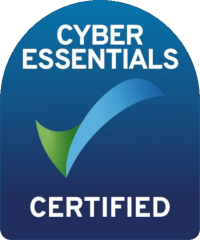BLOG
Digital Literacy in UK Classrooms: EdTech Insights 2025
How UK schools can equip learners with the digital skills, critical thinking, and confidence they need in an AI-powered world.
- Technology
- 03-07-2024
The Future of Digital Literacy in Education: Where Do We Go From Here?
As we wrap up our April focus on Digital Literacy for the Modern Classroom, one thing is clear: digital skills are no longer a “nice to have” - they are essential. In a world shaped by AI, data and online communication, digital literacy is fast becoming the backbone of a modern education.
It is not just about being able to use a device or access an online learning platform. It is about being able to think critically, spot misinformation, use AI tools ethically, stay safe online and participate confidently in an increasingly digital society.
Why Digital Literacy Matters More Than Ever
Digital tools are already transforming the way young people learn, collaborate and express themselves. The latest data from HEPI (2025) shows that 92% of UK undergraduates are now using AI tools to support their studies, a huge increase from 66% just one year ago. Meanwhile, research from the National Literacy Trust found that 77% of 13–18-year-olds have used generative AI to help with writing, studying or revision.
These figures reflect a major shift in how students approach learning and highlight the need for schools to prepare them not just to use these tools, but to understand them. How do these technologies work? What are their limitations? Can they be trusted? When is it appropriate to use them? These are the questions digital literacy education must address.
The goal is to help students become not just tech users, but informed, critical and ethical digital citizens.
Recent Developments in the UK and Beyond
Governments and education leaders are beginning to act. In March 2025, the UK Government announced a £45 million investment to improve digital connectivity and infrastructure in schools. This forms part of a wider effort to close the digital divide and ensure that all students, regardless of background, have fair access to the tools and skills they need.
Other recent initiatives include:
-
The launch of a Digital Inclusion Action Plan, designed to upskill the wider UK population and address long-term digital poverty
-
Digital Literacy Week in Scotland, where schools hosted sessions on cyber security, online safety and the ethics of AI
-
New pilot programmes in England focusing on financial digital literacy, helping pupils understand online scams, subscriptions and spending habits in games and apps
-
Global moves from countries like China, which is now embedding AI into its national curriculum as a foundational skill, not just a support tool
In Greater Manchester, a forward-thinking programme is also teaching soft skills such as empathy and time management alongside digital capability. This is a powerful reminder that while technology is vital, so too are the human skills that help us use it well.
What Can Schools Do Now?
Preparing students for the digital world does not require wholesale change. It requires intentional, thoughtful steps. Here is where education providers can start:
-
Embed digital literacy across the curriculum
Rather than limiting it to IT or computing lessons, digital thinking should be part of every subject. Whether it is evaluating online sources in English, building presentations in science or analysing media in PSHE, digital skills should be interwoven into everyday learning. -
Invest in high-quality CPD for teachers
Confidence varies across the teaching workforce. Many teachers say they do not feel equipped to tackle topics like AI, online misinformation or digital wellbeing. Ongoing CPD that is practical, relevant and inspiring is essential. -
Develop clear, forward-thinking policies
From AI use in coursework to device expectations and online behaviour, schools need consistent guidelines that balance innovation with responsibility. Students and teachers alike need clarity around what is allowed, what is encouraged and what is off-limits. -
Involve young people in shaping the conversation
Students are often ahead of the curve with tech. Engaging them in conversations about online behaviour, AI use and digital ethics builds shared understanding and empowers them to be part of the solution.
A Digital Skills Gap or a Skills Opportunity?
The World Economic Forum continues to list digital and cognitive skills as some of the most in-demand capabilities for the future workforce. And yet, as of this year, up to 10 million adults in the UK still lack basic digital skills (Digital Poverty Alliance, 2024).
This is not just an education issue. It is a national one. But it starts in schools.
By embedding digital literacy into how we teach and learn, not just what we teach, we can close this gap before it grows wider. And in doing so, we will not only boost attainment and engagement, but set young people up with the tools they need to succeed in a digital-first world.
Final Thoughts
Digital literacy is not a one-off lesson or an optional bolt-on. It is an ongoing conversation that will keep evolving as the technology does.
As we move into the next academic year and look to future planning, there has never been a better time for schools, colleges and education leaders to ask: Are we truly preparing our students for the world they are stepping into?
By embracing digital literacy in all its forms, from AI to online safety, critical thinking to collaboration, we are not just helping students keep up. We are helping them lead.

Lucy Greenwell
Product Marketing ManagerLucy is passionate about using technology and communication to improve organisations and help meet the needs of stakeholders and users.
Contact us
If you'd like to know more about how we can help your organisation, please get in touch.
Subscribe to our newsletter
About Us
Innovative digital solutions for education - supporting policy, leadership, delivery, and learning

Useful Links
Contact Us
Trent Lodge
Stroud Rd
Cirencester
GL7 6JN
0117 4573283